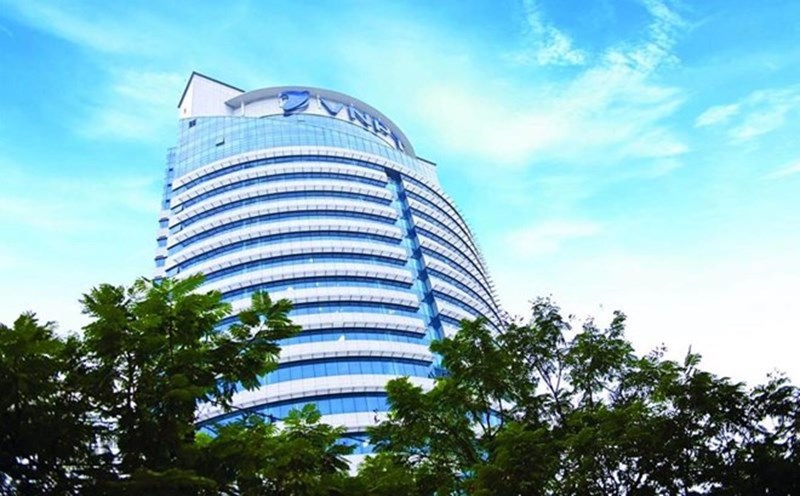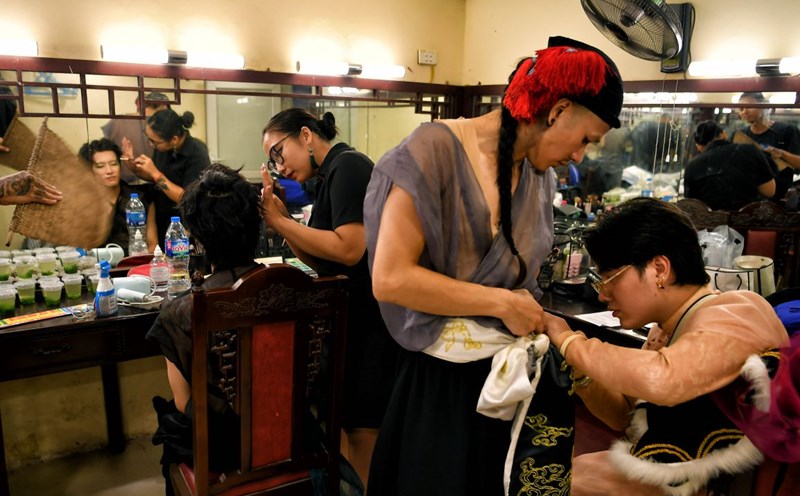The policy is correct, but lacks momentum
According to the "General plan for the construction of Hanoi Capital to 2030 and vision to 2050" approved by the Prime Minister, Hanoi City has issued a decision to relocate factories that cause pollution, high risk of chemical incidents or are no longer in accordance with planning to the suburbs.
It is expected that many old industrial facilities will be relocated to industrial parks in Thanh Oai, Gia Lam, Dong Anh. In the list of 9 facilities forced to be relocated urgently before 2030 prepared by the Hanoi People's Committee, there are many "big guys" such as Hanoi Beer Factory, Duc Giang Petroleum General warehouse, and "Cao - Xa - La" area. However, the relocation progress is still slow.
According to the Hanoi People's Council Urban Committee, some rare cases have been successful such as LIX Washing powder at 223 Nguyen Trai, which has completed the relocation of production facilities to Que Vo II Industrial Park (Bac Ninh); Hanoi phong and Thang Long tobacco have both been transferred to Thach That - Quoc Oai Industrial Park. In particular, the "golden" land plot 233B Nguyen Trai has been handed over to investors to prepare planning for the functional urban area.
Meanwhile, Habeco said that it had relocated its entire main production line 6 years ago to Me Linh factory, Hoang Hoa Tham branch only produces steam beer and bottled water.
Regarding this issue, lawyer Nguyen Duc Toan (Vimax Asia Law Firm, Hanoi Bar Association) said that relocating factories and enterprises out of the inner city is a correct policy. However, there are still some businesses that have just received new premises and kept old premises to continue production and business activities in the expectation of waiting for land use conversion. When the Land Law is changed, cases of land lease with annual payment or one-time lease with payment for 50 years must still go through the project auction process.
The change in policy has caused many businesses to be confused, leading to slow implementation, being stuck and not having enough conditions and legal basis to implement the investment plan as expected.
Need for a more synchronous and drastic mechanism
According to the Hanoi Department of Agriculture and Environment, there are many problems in determining the subjects and the authority to approve the relocation list. While Decision 130/QD-TTg is regulated by the Prime Minister, Decision 167/2017/ND-CP stipulates that the Provincial People's Committee will decide after the Hanoi People's Council agrees.
Enterprises often lack funding to relocate, while there is no synchronous policy to support infrastructure investment, land use conversion or job conversion. The coordination between departments, branches and localities still lacks uniformity.
In fact, many businesses after relocation still exploit old facilities for commercial purposes, while the planning after relocation towards infrastructure development, schools, and parks is still slow to be implemented.
Experts assess that relocating factories out of the inner city is an inevitable trend to build a sustainable urban area. However, to achieve this, Hanoi City needs to take bold steps, have systematically synchronous policies, and especially determination in organizing implementation.
According to Dr. Nguyen Du Minh (Department of Urban Development, Ministry of Construction), the most difficult thing is initial investment. To relocate, businesses must build factories, invest in new lines and equipment. Therefore, Hanoi City needs to take advantage of new regulations in the Capital Law ( soon to take effect), especially regulations on planning management and land use, to create a clear legal corridor to support investors. At the same time, Hanoi needs to plan industrial parks more focusedly and drastically in inspecting and urging relocation, avoiding the current situation.











